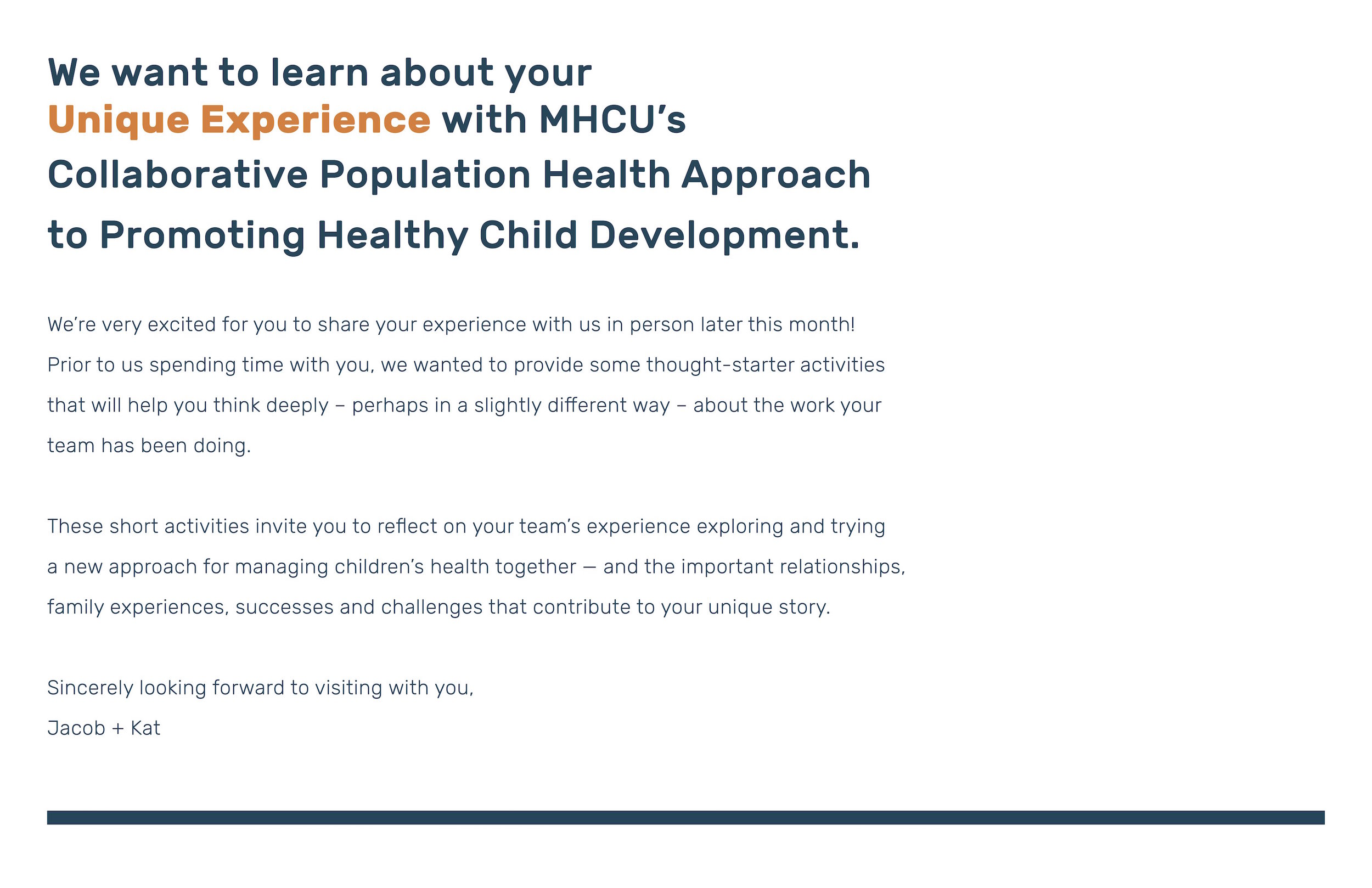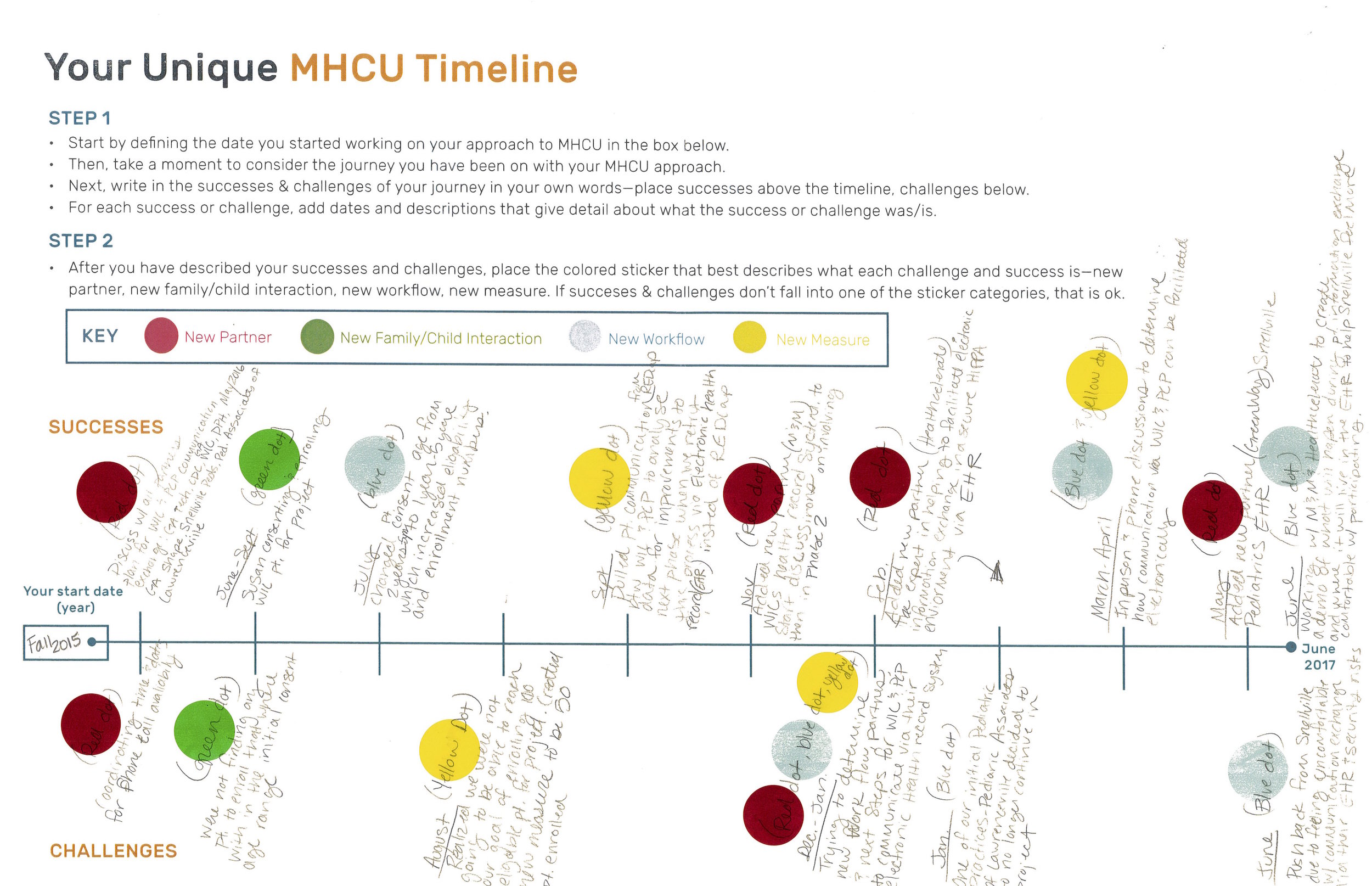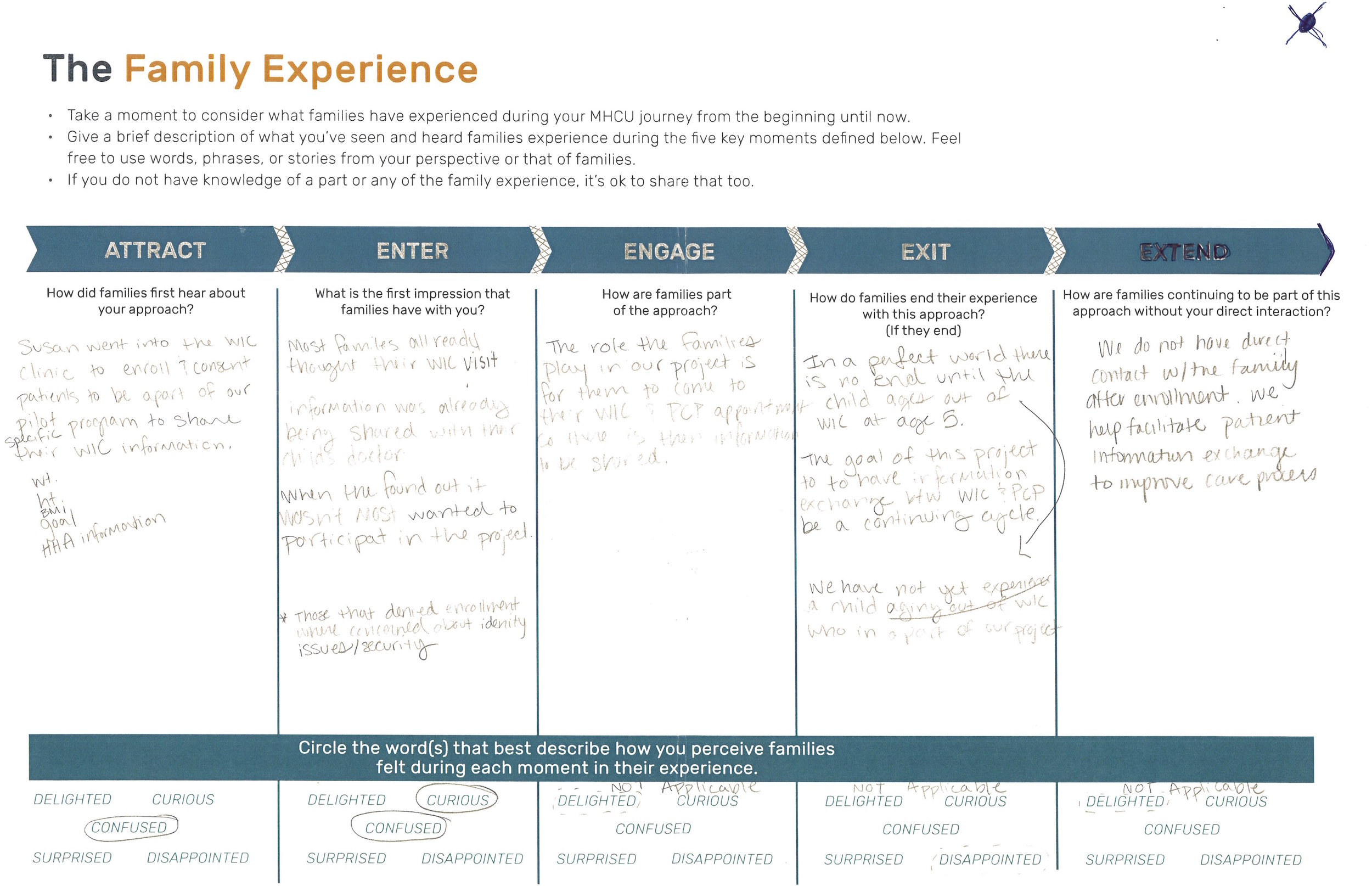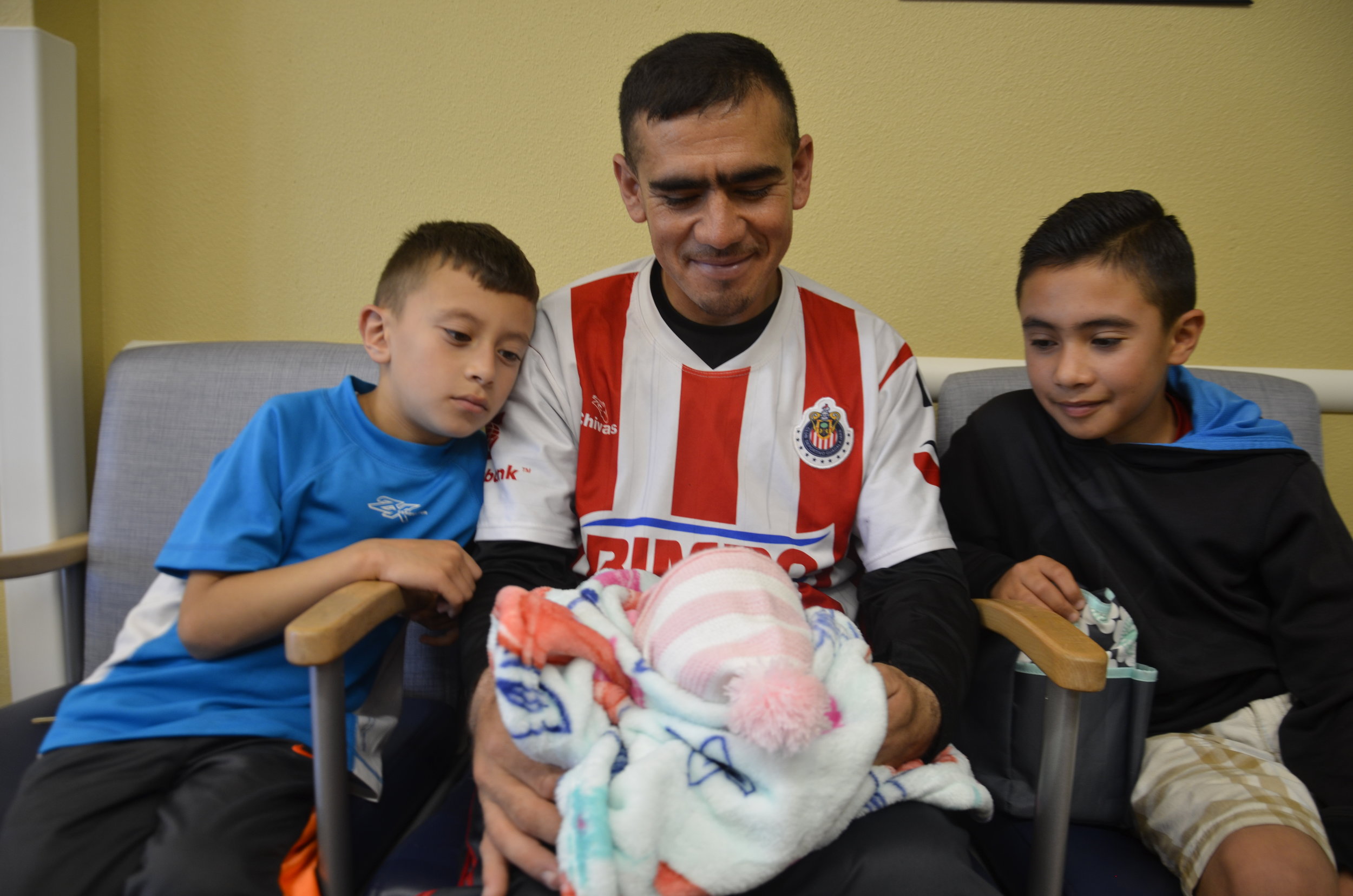IDENTIFYING BEST PRACTICES FOR COMMUNITY HEALTH PARTNERSHIPS
Our early environments shape our chances for healthy lives. Social, emotional, cognitive, and physical aspects of health develop in childhood and affect our lives as adults. Yet we find that children’s health and development is shaped by causes that are upstream of where most services and resources currently focus. There is an urgent need to complement quality care with the services and supports from other sectors that can increase the potential for a healthy population — and narrow persistent and costly disparities in health outcomes.
A better way is within reach. Healthcare has many contributions to make, but is not positioned to solve social concerns that influence health behaviors and health outcomes on its own. Diverse sectors such as healthcare, social services, education, legal support, and financial services can work together — rather than in isolation. The Moving Health Care Upstream (MHCU) Learning Network launched in 2016 to support such an approach in eleven communities across the country. The Learning Network's goal is to design and test innovative care concepts that enable organizations from different sectors to work as a single system to improve family health and social outcomes. The Learning Network is one component of the MHCU Initiative, which is a partnership of the UCLA Center for Healthier Children, Families & Communities and the Nemours Foundation, with funding from the Kresge Foundation.
I conducted site visits with several Learning Network teams across the country to: analyze and synthesize key learnings from the first two years of the initiative; and, create a guidebook highlighting crucial partnership elements, a suggested learning journey, and peer advice for interested community health partnerships around the country.




Moving Health Care Upstream Guidebook